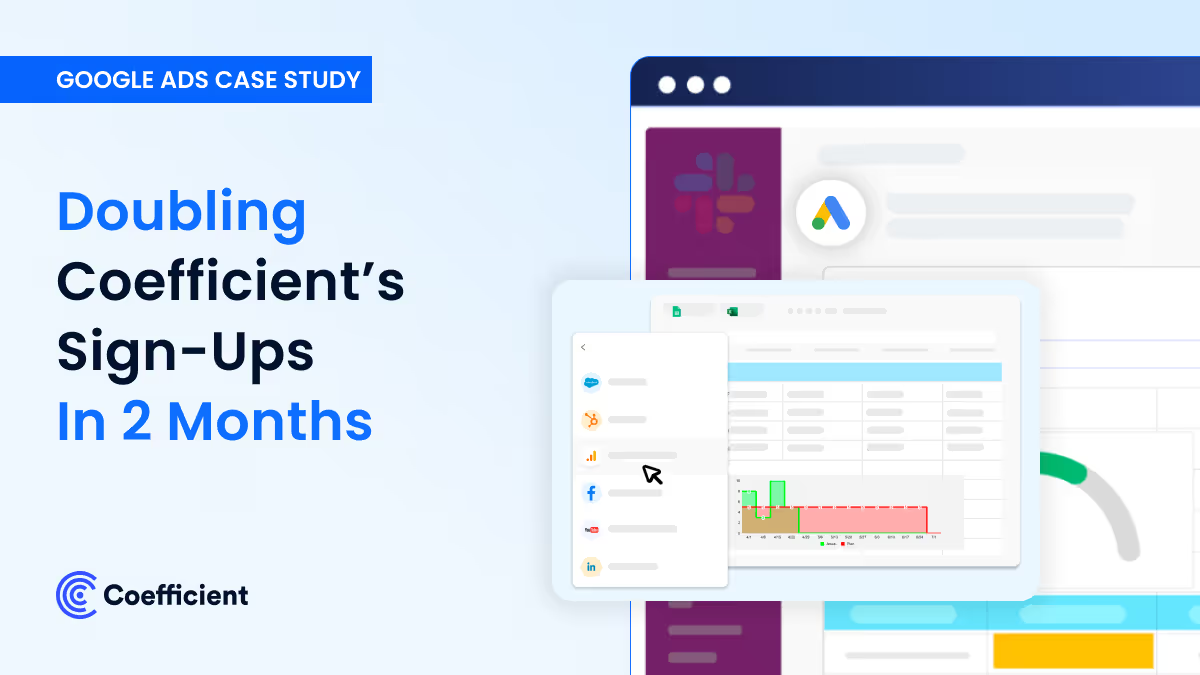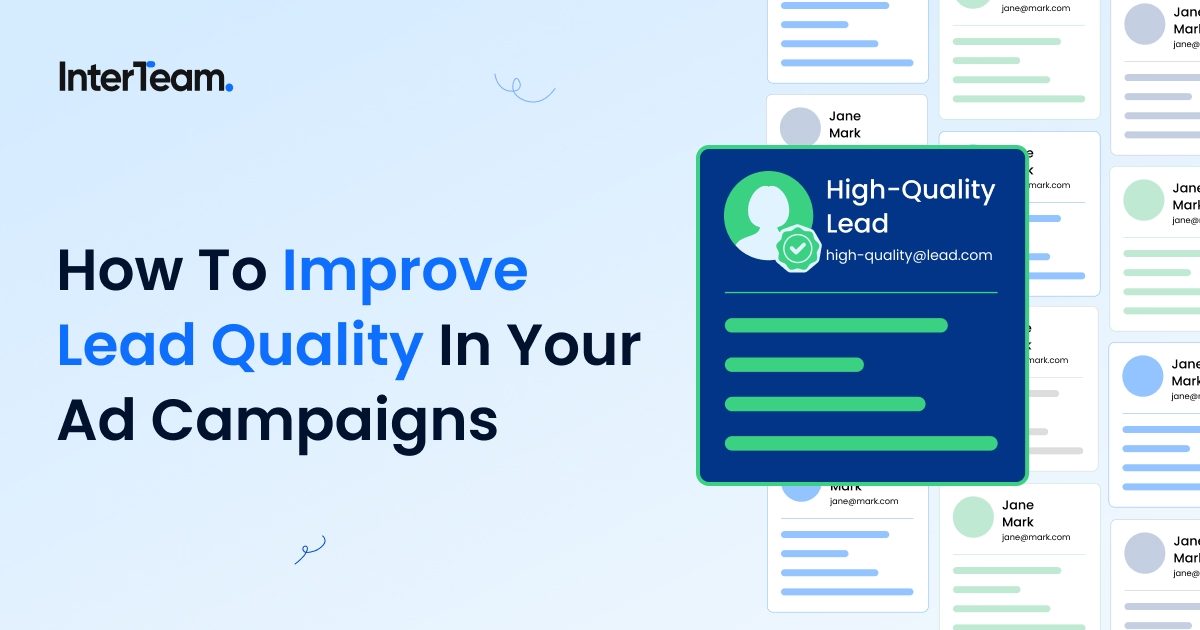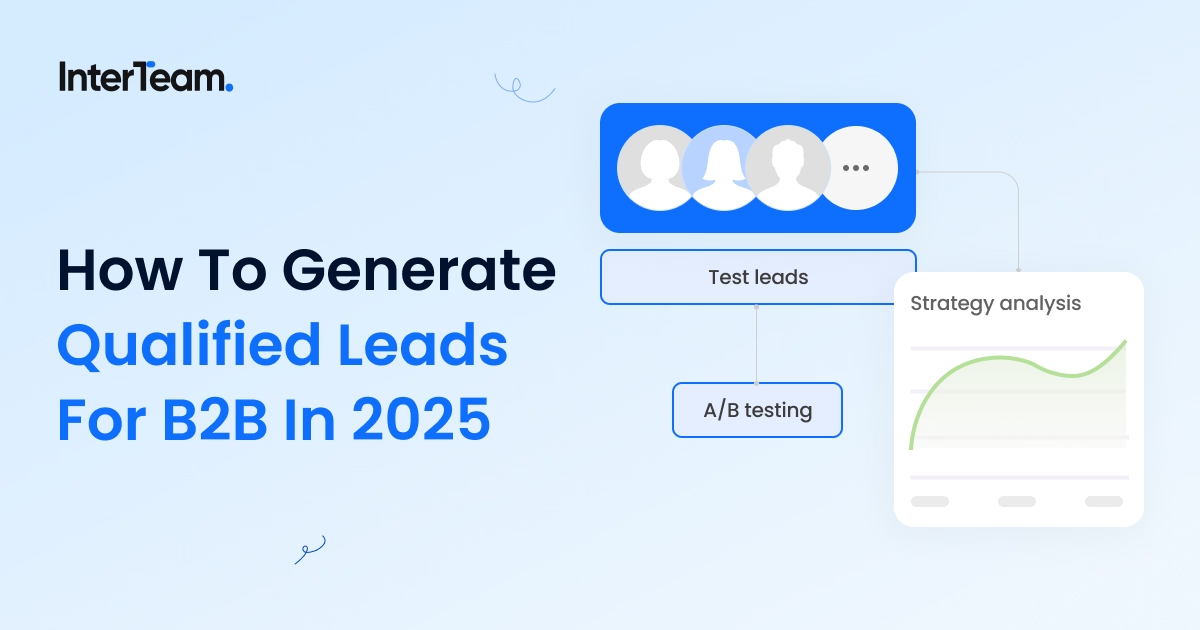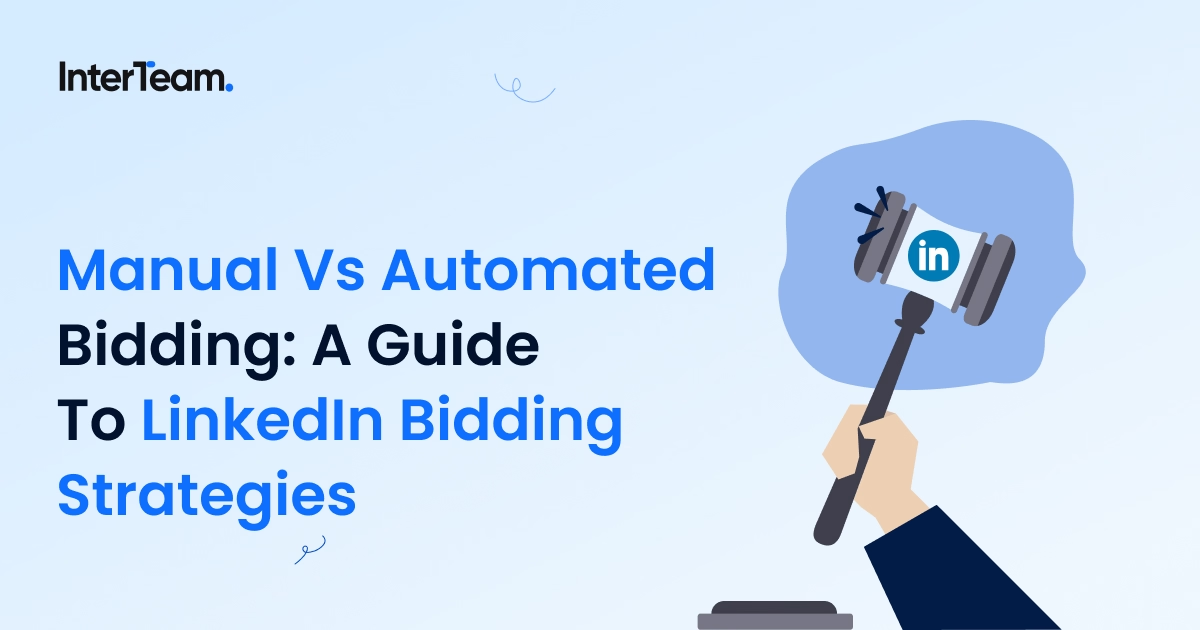Guide to B2B Targeting in the Google Display Network
If you're a B2B marketer trying to get in front of decision-makers across the web, the Google Display Network (GDN) offers unmatched reach with access to 2M+ sites and 2.5B monthly users. But reach alone isn’t enough.
The real challenge? Making sure your ads show up for the right people, at the right time, with the right intent. Do it well and GDN becomes a low-cost, high-scale growth engine. Do it poorly and you’re paying for clicks that never convert.
In this guide, we’ll break down how B2B companies can use Google Display to reach high-intent buyers, boost brand visibility and drive pipeline.
Types of Google Display Ads That Drive B2B Results
Choosing the right ad format isn’t just about creative flexibility—it’s about matching your format to your buyer’s journey. Whether you’re aiming to build awareness or re-engage warm leads, the Google Display Network (GDN) offers several ad types that help B2B companies reach high-intent buyers, boost visibility and ultimately drive pipeline.
You can explore the full list of supported formats in Google’s Display Ad overview. Here’s a quick look at the most effective formats for B2B campaigns:
Responsive Display Ads

Best for: Scalable reach + top-of-funnel awareness
Responsive display ads automatically adjust to fit any available ad space across millions of websites, YouTube, apps and Gmail. You upload assets (images, headlines, logos, video, copy), and Google’s machine learning assembles and tests combinations to optimize performance.
For B2B marketers, this format is a low-maintenance way to maximize brand visibility, especially for targeting decision-makers researching solutions on third-party sites.
Pro Tip: Combine this with custom intent audiences to target users who recently searched for your category or competitors.
Ad Specs
- Text
- Headlines: up to 30 characters, 1–5 required
- Long Headline: up to 90 characters, 1 required
- Descriptions: up to 90 characters, 1–5 required
- Business Name: up to 25 characters, 1 required
- Call to Action: automated
- Images
- Horizontal (1.91:1): 1200×628 px (min 600×314), 1–15 required (recommended 5)
- Square (1:1): 600×600 px (min 300×300), 1–15 required (recommended 5)
- Logo (1:1): 1200×1200 px (min 128×128), 1–5 required (recommended 1)
- Logo (4:1): 1200×300 px (min 512×128), 1–5 optional (recommended 1)
- Videos
- Horizontal (16:9): any length (preferred 30 sec), 1–5 optional (recommended 2)
- Square (1:1): any length (preferred 30 sec), 1–5 optional (recommended 2)
- Vertical (2:3): any length (preferred 30 sec), 1–5 optional (recommended 2)
HTML5 Interactive Ads
Best for: Mid-funnel engagement + interactive demos
HTML5 ads bring static banners to life with hover effects, video intros and clickable elements. One of the best and easiest interactivities that we often add is making the button interactive, changing color when you hover over it.
They’re ideal for B2B companies with more technical offerings (think SaaS dashboards or product features) where a visual preview can spark interest. For example, a B2B cybersecurity company might use hover-to-expand HTML5 ads that highlight product capabilities, prompting users to book a demo.
Pro Tip: Use interactive buttons that change color on hover to increase click-through rates without being disruptive.
Ad Specs
- Supported File Types: .html, .htm, .css, .js, .jpg, .jpeg, .gif, .png, .svg, .dfont, .eot, .otf, .tte, .ttf, .woff, .woff2
- Max File Package: Up to 100 files in a single .zip
- Max Download Size: 5 MB; publishers may require smaller
- Common Ad Sizes:
- Square & Rectangle: 250×250, 300×250, 320×320, 336×280
- Skyscraper: 120×600, 160×600, 300×600, 300×1050
- Leaderboard: 468×60, 728×90, 800×250, 970×90, 970×250
- Mobile: 300×50, 300×100, 320×50, 320×100, 320×480, 360×592, 360×640, 375×667
- Animation: Max 30 seconds
- Autoplay: Video allowed if muted; no autoplay audio
- Clickthroughs: Must use clickTags, must open in a new tab/window
- HTTP Calls: Max 100 per ad
- Cookies: Max 25 per ad
- Pop-Ups: Prohibited
Single Image Ads

Best for: Targeted brand messaging + visual storytelling
Simple yet effective, these classic banner ads come in multiple sizes to ensure wide placement across the GDN. They work well when you have a bold visual concept or message that doesn’t require interaction, such as announcing a product launch, promoting a whitepaper or sharing an industry stat.
Pro Tip: Run A/B tests with different CTAs (e.g., “Download the Guide” vs. “See the Demo”) to align with funnel stage intent.
Ad Specs
- Supported Formats: JPG, PNG, GIF
- Max File Size: 600 KB
- Ad Sizes:
- Square & Rectangle: 200×200, 240×400, 250×250, 250×360, 300×250, 336×280, 580×400
- Skyscraper: 120×600, 160×600, 300×600, 300×1050
- Leaderboard: 468×60, 728×90, 930×180, 970×90, 970×250, 980×120
- Mobile: 300×50, 320×50, 320×100
- Animated GIFs:
- Max length: 30 seconds
- Looping: Allowed, but must stop after 30 seconds
- Frame rate: Slower than 5 FPS
Gmail Ads

Best for: Retargeting warm leads + mid-funnel conversion
Gmail ads appear directly in your target’s inbox and expand like a regular email. They’re particularly useful for re-engaging leads who visited your site or downloaded gated content but didn’t convert.
Because inboxes are a more personal space, Gmail ads work best with softer CTAs like free trial offers, event invites or customer stories.
Pro Tip: Use these ads to nurture long sales cycles, especially in enterprise B2B or high-ticket service industries.
Now that we’ve reviewed the most effective ad formats for B2B campaigns, let’s explore how to place them where they’ll drive the most qualified leads.
B2B-Friendly Placements in the Google Display Network
With access to over 2 million websites, apps and Google-owned platforms, the Google Display Network (GDN) gives B2B marketers an unmatched opportunity to reach decision-makers where they consume content, whether that’s an industry news site or their Gmail inbox.
But to drive pipeline, visibility isn’t enough. You need strategic placement: ads on the right screens, at the right moments, in the right context.
Does the GDN Include B2B-Friendly Sites?
Yes, and many of them are already part of your buyer’s daily digital routine. Ads can appear across Google properties and trusted third-party platforms like:
- Gmail – For retargeting or nurturing mid-funnel leads
- YouTube – Ideal for thought leadership content or product videos
- Google News / Google Finance – Great for high-intent, industry-specific audiences
- Forbes, Bloomberg, Quora, TechCrunch – Premium third-party placements that build credibility in B2B verticals
These placements can help you build brand awareness with senior-level buyers and keep your solutions top of mind throughout long sales cycles.
Why Placement Exclusions Matter in B2B
The scale of the GDN is both a strength and a risk. Without filters, your ads might appear on:
- Foreign-language sites irrelevant to your market
- Low-quality or polarizing websites
- Mobile apps with high impression volume but poor lead quality
To protect your brand and your budget, it’s critical to build a robust placement exclusion list.
At Interteam, we’ve compiled over 12,000 low-value placements over the last five years to ensure our B2B clients’ ads only appear in quality environments.

Now that we’ve covered the ad formats and placement strategies that drive lead generation, let’s look at why these campaigns actually move the needle for B2B growth.
What Makes Google Display Ads Effective for B2B Growth?
For B2B marketers, the Google Display Network (GDN) offers a powerful balance of cost-efficiency, precise audience targeting and contextual relevance that supports pipeline generation across every stage of the funnel.
Cost-Effective Brand Awareness
For top-of-funnel visibility, GDN is one of the most budget-friendly platforms available. While B2B search ads often exceed $3.00 in cost per click (CPC), which is the amount you pay each time someone clicks your ad, display ads typically run closer to $0.79, according to WordStream’s benchmarks.
That cost difference matters when you're:
- Building awareness in new markets
- Running multi-touch nurture campaigns
- Scaling reach without exhausting ad budgets
Why CPCs Are Lower on Display Ads
Lower CPCs are largely due to reduced competition. Instead of bidding on high-intent search terms, you’re competing for placements based on audience signals and contextual relevance—a smart play for early-stage engagement.
If you're concerned about rising ad costs, check out our article on CPC inflation and how to respond for strategies to protect your ROI.
Precision Targeting for High-Intent Audiences
The Display Network provides deep segmentation tools to ensure your ads show up for the right people at the right time, even when they’re not actively searching.
Key B2B Targeting Options:
- In-Market Audiences: Reach users who are actively researching products or services similar to yours, such as “enterprise project management tools.”
- Custom Audiences: Build segments based on user behavior, including keywords searched, websites visited, and purchase intent. Learn more in Google’s Display campaign targeting guide.
- Remarketing Audiences: Re-engage users who previously visited your website or interacted with your ads, especially those who abandoned mid-funnel pages.
- Device Targeting: Focus on desktop users, where most B2B research and conversions happen. This ensures your ads align with how decision-makers actually evaluate vendors.
- Demographics & Affinity: Refine your audience based on factors like industry interest, job function, or firmographic traits such as company size or revenue.

Contextual Targeting That Aligns With Buyer Intent
Beyond audience attributes, you can also control where your ads appear by targeting specific content environments:
- Topic Targeting: Show ads on pages discussing relevant themes (e.g., “workforce management” or “compliance automation”)
- Keyword Targeting: Reach users browsing content that includes your most relevant B2B terms (e.g., “employee scheduling software”)

Targeting is not optional. It is the most important factor in a successful B2B display campaign. Buyers don’t stumble onto solutions by chance. They search, compare, and evaluate. And more often than not, they start with Google.
Combining behavioral and contextual targeting puts your ads in front of the right buyers, in the right context, at the right time. We’ve found that B2B display campaigns perform best when:
- Optimized for desktop, where enterprise research happens
- Tested across custom and in-market segments
- Exclusions and negative placements are actively managed

One strong example of these principles in action comes from Coefficient. By optimizing their Google Ads targeting strategy, they doubled weekly trial sign-ups in just two months while lowering CPC and improving overall conversion rates. Strategic audience segmentation and full-funnel execution turned the Display Network into a true growth engine.
So how can you apply these strategies to your own campaigns? Let’s break down the full-funnel approach B2B marketers can use to turn visibility into real pipeline.
B2B Advertising Strategies for Google Display Ads
Successful B2B display campaigns are never one-size-fits-all. The sales cycle is longer, buyers are more discerning, and every click must move a lead meaningfully closer to conversion. To drive real pipeline impact, your strategy needs to reflect that complexity.
The most effective approach is a full-funnel strategy—tailoring your ads, placements, and audience segments to meet buyers where they are in the decision process.

Top-of-Funnel (ToFu): Build Awareness with the Right People
At the top of the funnel, your goal is simple: introduce your brand to potential B2B clients in a way that resonates with their professional interests. This stage is all about building awareness and laying a strong foundation. Here’s how you can do it:
Ad Placement Strategy:
Effective B2B advertising starts with more than just picking the right ad format or targeting option. It requires a strategy built around the buyer’s journey. In fact, Think with Google reports that 71% of B2B buyers begin their research with a general Google search—well before they ever talk to a vendor.
To reach them early, focus your placements on industry-specific sites, management blogs, and platforms like TechCrunch, CIO.com, or LinkedIn’s partner network. Skip broad consumer channels and show up where decision-makers are actively educating themselves.
Our article on B2B Advertising Best Practices: 8 Strategies That Actually Work outlines actionable techniques to attract, nurture, and convert high-quality leads.
Audience Targeting Strategy:
Create custom intent audiences based on high-value search terms, such as “employee scheduling software” or “enterprise time tracking.” Then, layer in in-market audiences focused on business services or tools specific to your industry.
To further refine your reach, use affinity segments to target professionals based on their job functions and B2B interest areas. This combination ensures your brand appears in front of people who are already researching or comparing solutions in your category, even if they aren’t actively searching at the moment.
Goal: Drive awareness with buyers who match your ICP and show early-stage buying behavior.
Mid-to-Bottom-of-Funnel (MoFu/BoFu): Turn Interest into Pipeline
Once you’ve generated awareness, the focus shifts to reinforcement and conversion. These are your warm leads—buyers who’ve engaged but haven’t committed. This is where precision matters most.
Retargeting Strategy:
Use retargeting to re-engage visitors who viewed high-intent pages such as product demos, pricing, or case studies. Focus on users who visited your site within the last 7 to 14 days, when your brand is still fresh in their minds.
Tailor your messaging based on the specific content they engaged with. For example, you might say, “Still exploring [Product]?” or “See how [Customer] achieved [Result]” to speak directly to their interests and stage in the buyer journey.
High-Intent Segmentation:
Build audience lists from users who downloaded gated content, contacts who started but didn’t complete a signup, and visitors who viewed your demo request or trial pages. Once these segments are defined, personalize your ad creatives to reflect where each user is in their journey, making your messaging more relevant and effective.
Ad Placement Strategy:
Focus on sites with decision-stage intent, like tech review platforms, enterprise news, or niche trade publications. Actively exclude low-quality placements, mobile games, and content that doesn’t match your brand tone or funnel stage. These reinforce trust and keep your brand in the right context as buyers finalize their options.
Funnel Alignment Drives ROI
Full-funnel targeting isn’t just a best practice in B2B marketing—it’s essential. Top-of-funnel campaigns build awareness with the right audience. Mid-funnel ads keep your brand in consideration as prospects evaluate solutions. Bottom-funnel tactics drive conversions by reaching high-intent buyers at the decision stage.
If you’re looking to refine your approach, HubSpot’s guide to the B2B marketing funnel offers a useful breakdown of how to align your efforts across each stage.
This is exactly how Expert Press approached their strategy. By combining Google Display with LinkedIn retargeting and aligning creative to each funnel stage, they generated over 150 leads and a six-figure return in just two months. Precision targeting turned segmented intent into real revenue.

Need Help Reaching the Right Buyers with Google Display Ads?
The Google Display Network is one of the most cost-effective ways to get in front of high-quality B2B leads. When paired with the right audience segments and smart placements, it becomes a powerful tool to grow visibility and drive pipeline.
But executing an effective campaign takes more than setting up a few ads. It requires strategy, testing, and a deep understanding of buyer behavior. If you’re busy running your business, managing all of that alone can be overwhelming.
That’s where we come in. At InterTeam Marketing, we specialize in B2B display advertising that delivers results. Whether you need help building a campaign from scratch or want a second set of eyes on your current setup, we’re here to help.
Book a Free Strategy Call to find out how Google Display Ads can work for your business.
FAQs
Template question
Template text answer
















